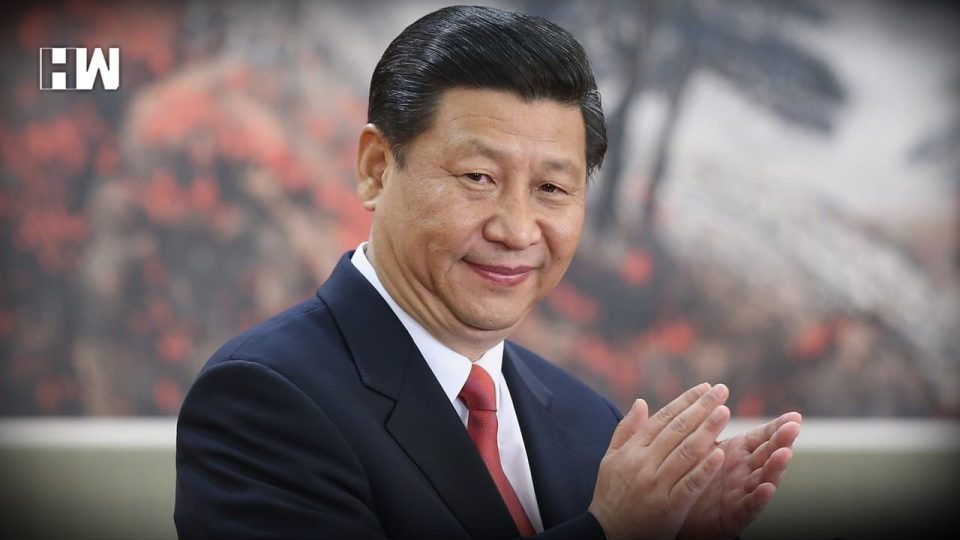Beijing | China will face a “graver and more complicated” environment to development, Premier Li Keqiang warned on Tuesday as the world’s second-largest economy slashed its GDP target to 6 to 6.5 per cent this year, amid an ongoing trade war with the US and continued economic slowdown.
The lowered growth rate from the 2018 target of 6.5 per cent was proposed by Premier Li in his work report for this year at the annual session of the rubber-stamp Parliament, the National People’s Congress (NPC).
Nearly 3,000 delegates from across China gathered in Beijing on Tuesday for the start of the annual session of the NPC.
Besides the trade war with the US, China is also haunted by the spectre of a continued economic slowdown. Last year, the economy, which is largely dependent on exports, slowed down to 6.6 per cent, the lowest in about three decades.
“A full analysis of developments in and outside China shows that in pursuing development this year, we will face a graver and more complicated environment as well as risks and challenges, foreseeable and otherwise, that are greater in number and size,” Li said in the report.
“What we faced were severe challenges caused by the growing pains of economic transformation,” he said, in an apparent reference to China’s efforts to rejig its economy from export dependent to relying more on consumption.
Downward pressure on the Chinese economy continues to increase, growth in consumption is slowing and growth in effective investment lacks momentum, Li said, outlining the reasons for China’s downward trend from the heyday of double digit growth in 2010.
“The real economy faces many difficulties,” he said, adding that the issues related to providing accessible, affordable financing to small and micro business have not yet been effectively solved.
Li said the business environment still fell short of market entities.
“Our capacity for innovation is not strong and weakness in terms of core technologies for key fields remains a salient problem. There are many risks and hidden dangers in the financial and other sectors,” he said in a frank assessment.
Li also spoke about the public dissatisfaction.
“There is still public dissatisfaction in many areas, such as education, healthcare, elderly care, housing, food and drug safety and income distribution,” he said, referring to food and work safety scandals.
“The lessons these incidents left us with should never be forgotten,” he said.
In order to rejig its economy, China is all set to pass a new foreign investment law in a hurry, providing an equal footing to investors abroad with that of local business with legal safeguards for IPR and technology transfer.
The draft law is aimed to meet the main demands of US President Donald Trump to end the trade war.
The draft foreign investment law will be submitted to the NPC, which began here on Tuesday, for review on March 8 and put for a vote on March 15, NPC spokesman Zhang Yesui said on Monday.
The NPC is often regarded as a rubber-stamp parliament for its routine approval of the proposals of the ruling Communist Party of China (CPC).
The NPC, with over 2,900 deputies and the advisory body – the Chinese People’s Political Consultative (CPPCC) – is holding its annual sessions in Beijing. The sessions would go on for the next 10 days.
The new investment law providing a level-playing field to investors abroad with local investors with all rights is being passed by China in record time to work a deal with Trump’s trade war which is badly affecting Beijing.
Trump, who declared the trade war last year, is demanding China to reduce the USD 375-billion trade deficit, provide legal protection for intellectual property rights (IPR), technology transfer and more access for American goods to Chinese markets.
He has already increased the tariffs on over USD 250 billion Chinese exports to the US and threatened to extend tariffs on USD 200 billion Chinese imports to 25 per cent.
Trump has extended the March 1 deadline to impose further tariffs on the rest of the Chinese goods.
Both the countries are holding intense talks to end the deadlock.
According to the other key data mentioned in Li’s speech to the NPC on Tuesday, China aims to maintain consumer inflation level at around 3 per cent and create over 11 million new urban jobs.
The surveyed urban unemployment rate is projected to stay around 5.5 per cent, the registered urban unemployment rate within 4.5 per cent.
“The above projected targets are ambitious but realistic — they represent our aim of promoting high-quality development, are in keeping with the current realities of China’s development, and are aligned with the goal of completing the building of a moderately prosperous society in all respects,” Li said.
This year is the 70th anniversary of the founding of the People’s Republic of China. It would be a crucial year for China as it endeavoured to achieve the first centenary goal of building a moderately prosperous society in all respects, the report said.
As an independent media platform, we do not take advertisements from governments and corporate houses. It is you, our readers, who have supported us on our journey to do honest and unbiased journalism. Please contribute, so that we can continue to do the same in future.

